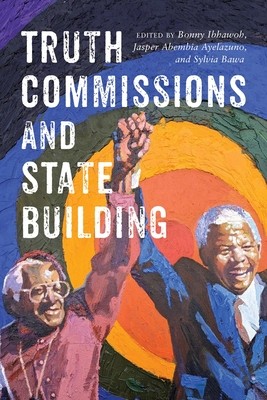
- We will send in 10–14 business days.
- Publisher: McGill-Queen's University Press
- ISBN-10: 0228018994
- ISBN-13: 9780228018995
- Format: 15 x 22.6 x 3.1 cm, minkšti viršeliai
- Language: English
- SAVE -10% with code: EXTRA
Truth Commissions and State Building (e-book) (used book) | bookbook.eu
Reviews
Description
More than just an opportunity to uncover fact after conflict, truth commissions can also offer restorative power to nations across the globe. Truth Commissions and State Building presents the first comparative study of the role of truth commissions in state building. Examining the commissions as mechanisms for civic inclusion, identity formation, institutional reform, and nation-(re)building in post-conflict and post-authoritarian societies, the book shifts attention towards institutional innovation in African countries (as opposed to the US, Europe, and Latin America), where approximately a third of all commissions have been established. Contributors explore the mandates, methods, outcomes, and legacies of truth commissions, analyzing their place in transitional and restorative justice. Rather than conceptualizing state building as incidental to their work, they present it as an intrinsic, central component. This flagship volume - authored by a stellar cast of policymakers, practitioners, and scholars - brings multidisciplinary and cross-sectoral perspectives to bear on the complex role of truth commissions in addressing transitional justice, historical injustices, and present-day human rights violations. As more countries, both in the Global South and North, adopt this model to address historical and contemporary abuses, the dialogue between different sectors of society, modelled here, will help inform this process - wherever it might occur.
EXTRA 10 % discount with code: EXTRA
The promotion ends in 22d.11:02:21
The discount code is valid when purchasing from 10 €. Discounts do not stack.
- Publisher: McGill-Queen's University Press
- ISBN-10: 0228018994
- ISBN-13: 9780228018995
- Format: 15 x 22.6 x 3.1 cm, minkšti viršeliai
- Language: English English
More than just an opportunity to uncover fact after conflict, truth commissions can also offer restorative power to nations across the globe. Truth Commissions and State Building presents the first comparative study of the role of truth commissions in state building. Examining the commissions as mechanisms for civic inclusion, identity formation, institutional reform, and nation-(re)building in post-conflict and post-authoritarian societies, the book shifts attention towards institutional innovation in African countries (as opposed to the US, Europe, and Latin America), where approximately a third of all commissions have been established. Contributors explore the mandates, methods, outcomes, and legacies of truth commissions, analyzing their place in transitional and restorative justice. Rather than conceptualizing state building as incidental to their work, they present it as an intrinsic, central component. This flagship volume - authored by a stellar cast of policymakers, practitioners, and scholars - brings multidisciplinary and cross-sectoral perspectives to bear on the complex role of truth commissions in addressing transitional justice, historical injustices, and present-day human rights violations. As more countries, both in the Global South and North, adopt this model to address historical and contemporary abuses, the dialogue between different sectors of society, modelled here, will help inform this process - wherever it might occur.


Reviews